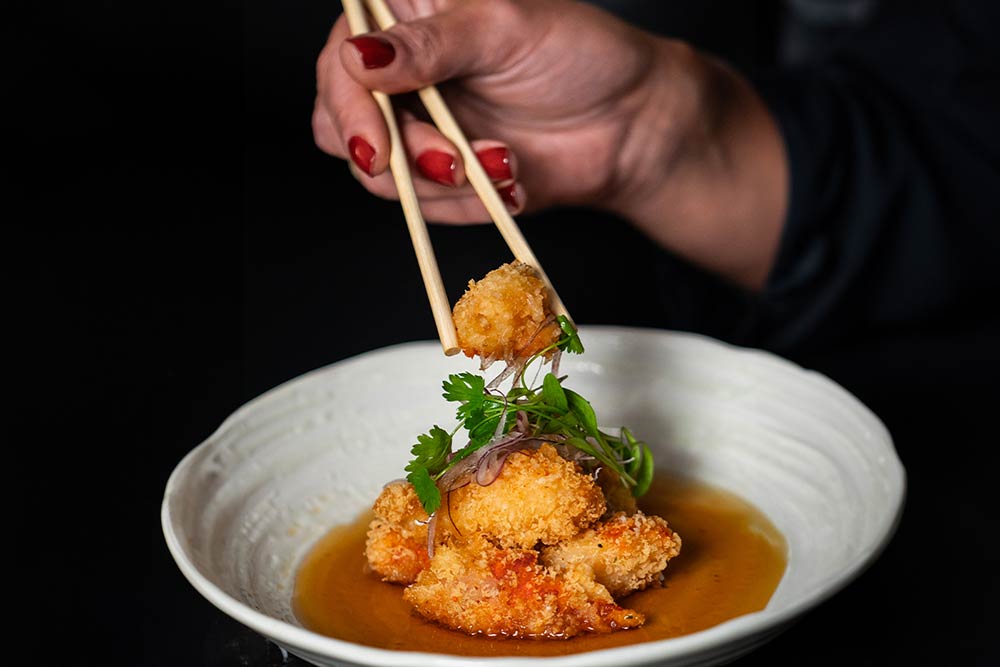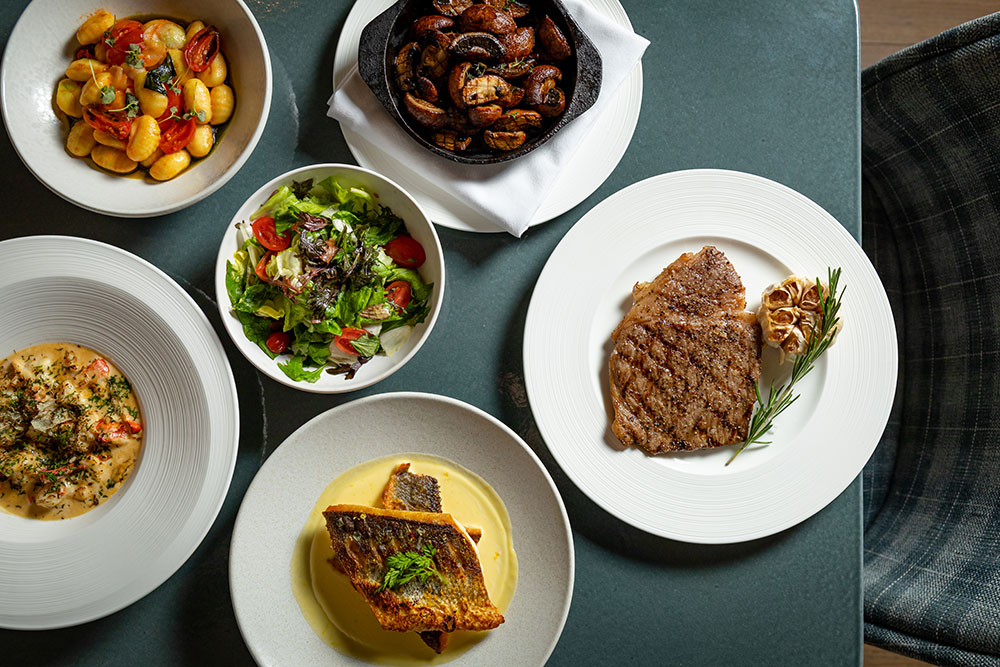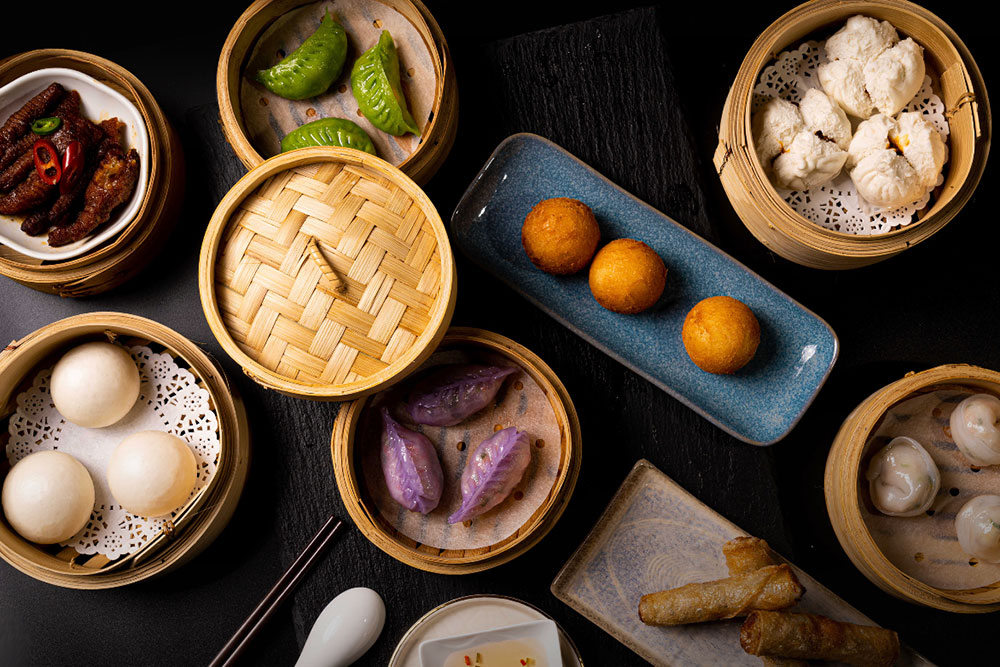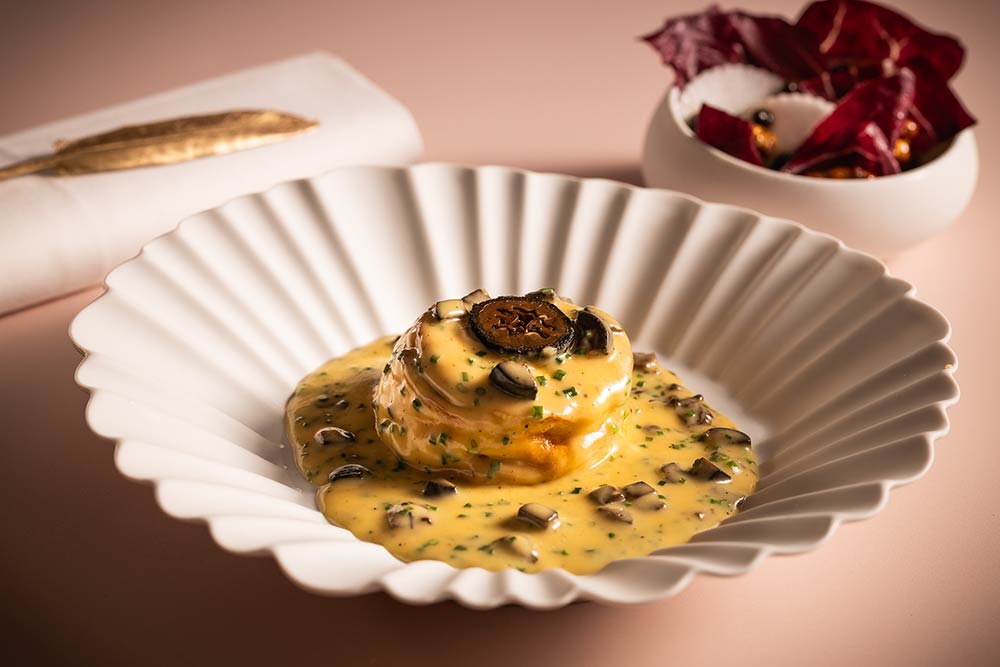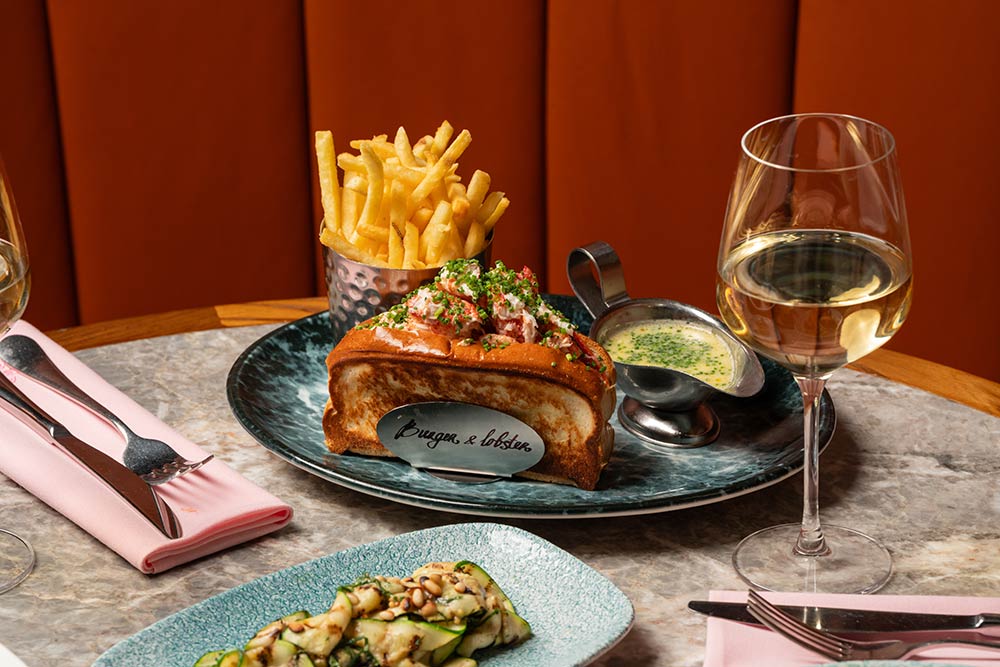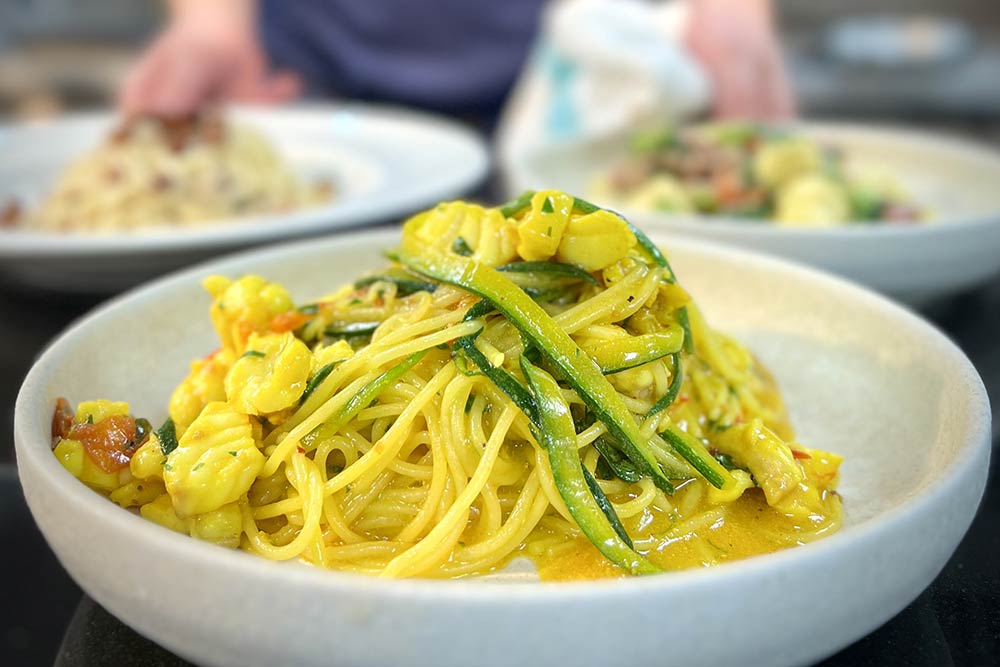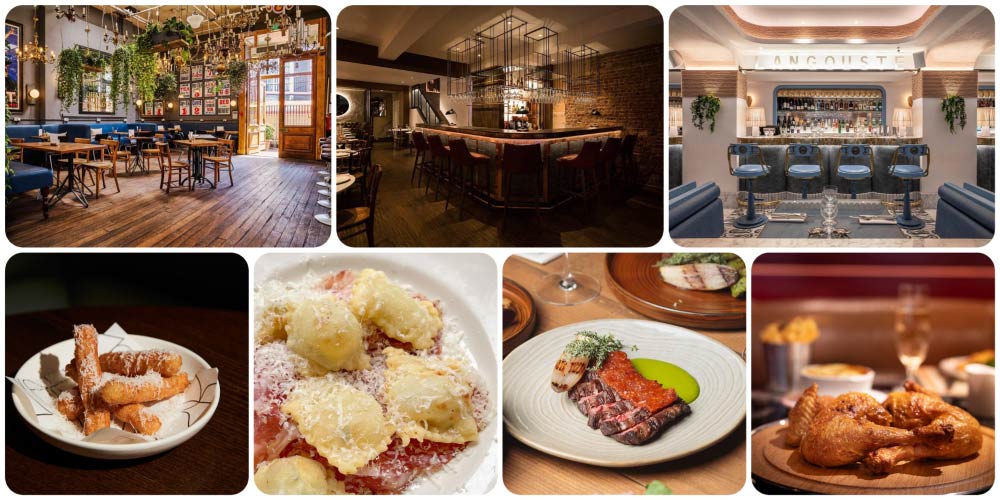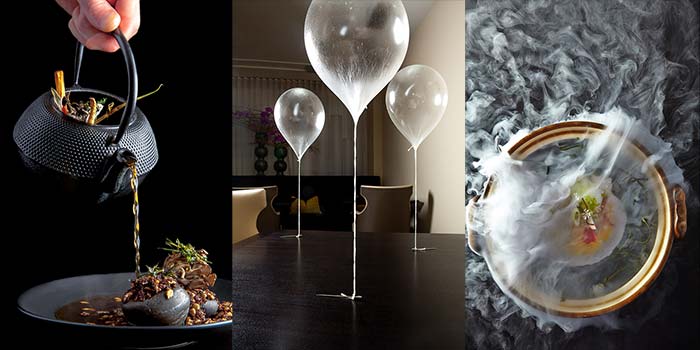
Grant Achatz's mantlepiece - if he has one - must be groaning with awards. His Chicago restaurant, Alinea, has won a lot of them in the decade since it opened. It's picked up three Michelin stars along the way, bobbed in and out of the Top 10 of the World's 50 Best list (currently at 26) and, crucially, is much loved. When the World's 50 asked the public to cast their votes for the first time, Alinea was a popular winner. Maybe it's because it's much more than a restaurant - as Alinea's own blurb says - more of an experience.
Now, while the Chicago restaurant closes for a major refurbishment, Alinea is on the move - popping up in Madrid and Miami until it reopens in April. For just four weeks we won't have to a) try and get a reservation at the sold out till forever restaurant and b) fork out the price of a transatlantic flight. Hot Dinners sat down with Achatz on the eve of his move to Spain to find out what we can expect from the experience (and how to get a table).
Why did you choose Madrid and Miami?
First of all, it comes down to finding partners. As you can imagine it takes a tremendous amount of money to move over 40 people anywhere for 5 weeks. You have to cover housing, airfare and all these things that are not typically wrapped up in the cost of a restaurant. You have to find a partner to help with that and normally it would be a hotel. That’s the the nuts and bolts of the thing.
As for Madrid itself, I have always loved Spain and go there about once a year. I just find it really inspiring in terms of creativity that we bring home to the restaurant.
I think that it goes back to Spain being one of the first European countries that I visited, when I was a young culinary. My first trip there was in 2000 and that was when ElBulli was open and Spanish cuisine had taken a jump ahead of the French in terms of being progressive and avant garde and that spoke to my youth and my personality as a cook. It was invigorating and very exciting. So that was a natural choice.
The other aspect is that it really invigorates the team. As a group, they get to travel to Europe and Miami - especially in January and February which are the worst two months here in Chicago. It all works out from both a lifestyle point of view for the team and a financial requirement for the restaurant to remain open.
You can inspire the staff by giving them this opportunity to live in Madrid and Miami for 5 weeks apiece (they won’t live in Chicago for 12 weeks). It’s just a win-win-win for everyone, you get to see new ingredients, cuisines, meet new chefs and restaurateurs - it can be really inspiring.
We’ve seen similar pop-ups from Heston Blumenthal (The Fat Duck in Melbourne) and Rene Redzepi (Noma in Tokyo). Were you influenced by those pop-ups?
Not much. People don’t realise - even though it’s become more and more popular currently - pop up restaurants have a very, very long history. People think that this is a new phenomenon. I was reading an article in the NYT about the passing of Paul Prudhomme and it talked him taking his restaurant in the 70s and popping up in San Francisco and New York City to bring Cajun and Creole food to the coast.
It made me realise that this is something that’s not necessarily new. We’ve been doing it for a long time. We actually did a pop up with 11 Madison Park in New York City about 4 years ago where we swapped restaurants.
So now I think chefs and restaurateurs are realising the same - as with Heston moving to Australia while making improvements to the Fat Duck.
While we’re in Madrid and Miami, the restaurant back home here is going to go under a huge renovation. New Year’s Eve will be our last service, probably until the beginning of April.
When you’re running a business like that and you have 50, 60, 70 employees, you can’t just lay them off for three months and expect them to just be there when you’re done with construction and re-open. It just makes sense to open in a different location while your flagship restaurant is inoperable. You have the opportunity not to feel the financial pressure while you’re closed and renovating.
Did you ever think about bringing the pop up to London?
London is one of my favourite cities in the world. We go there at least once a year. We have some family in Oxford and usually I go for the World’s 50 Best awards and Top 50 Bars (I was there in June for that).
It’s going to be a cliche because everyone talks about it but I love St John, The Clove Club, The Ledbury and The Harwood Arms and The Golden Hind for Fish & Chips. I love the city and we always have great meals there.
I know that Thomas Keller did a French Laundry pop-up there and 11 Madison Park were also toying with the idea of setting up shop there for a bit. Logistically it’s just a tremendous amount of work. I would love to do it - but, for instance, the entire staff would have to get fingerprinted in order to get the proper visa. The paperwork itself was just intense.
And getting a hotel becomes a critical piece in the whole puzzle because it’s not a week or a couple of days - it’s a month that 50 or so of us will be living in the city - it’s a big expensive project.
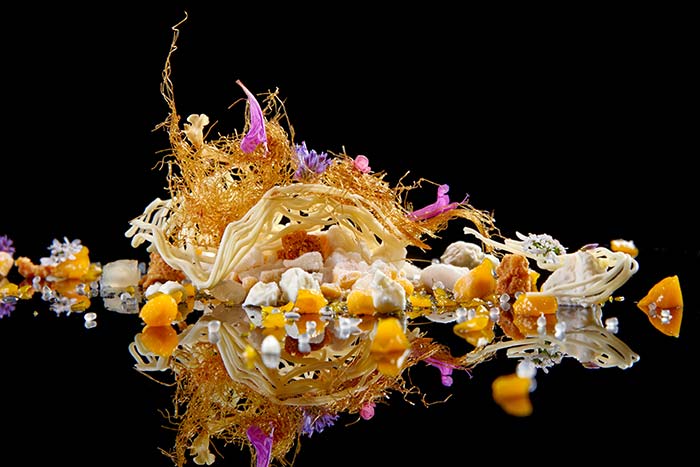
What can you tell us about the ethos behind Alinea?
We wanted Alinea to be a globally influenced restaurant. There are cuisine genres like New Nordic where everything is supposed to be coming from 40km of the location of the restaurant but we always thought that if we can get a really great fish from Tsukiji market in Tokyo flown over just two days after it comes out of the water, we should do that. And if we wanted to get a particular fruit from Brazil that you simply can’t find anywhere in the United States, we should do that. So our ideology of how the restaurant should be influenced is a global approach not a local one.
What about your own personal Spanish influences?
I think that whenever I went to Spain I was always inspired by what I found - the food, ingredients, technique and the people. When we were researching the tapas menu for our second restaurant Next, Andoni Luis Aduriz (from Mugaritz) and Elena Arzak would literally chaperone us around the old part of San Sebastien to learn more about the pinxtos and what are the best places. They’re just a very generous, happy bunch of people from my experience.
What can we expect from the Madrid pop-up?
Firstly, when the restaurant [in Chicaco] reopens from renovation, we want it to be a new experience. And we’re going to take the opportunity to open that up when we’re in Madrid. So I can say with confidence that from the menu we’re serving in Chicago tonight (mid November), we might only serve two of those dishes while we’re in Madrid. The rest will be a direct interpretation of what Alinea will become when it reopens in the spring.
Secondly, we also have to pay homage to Spain and respect the ingredients and the markets and everything that Madrid has to offer. It’s the same thing that Rene did in Tokyo. He would go to Tsukiji Market and use all the ingredients that were around him. I think we have to do that same thing, it would be disrespectful not to.
We also have to pay attention to some of the gastronomic history - riffing off of some of the signature dishes of Spain. Whether those are paellas or bocadillos or involving iconic Spanish ingredients like jamon Iberico or the local shellfish - we want all of that.
And finally, there are Spaniards who have never been to Alinea Chicago so we want to bring part of that identity to Madrid.
So we need to bring those three things together. And the experience is will be an event in itself.
Will Miami be a similar experience then - so Alinea but using local influences?
The hotel we’re in for the Miami pop-up is owned by a Venezualan so we’re going to want to pull a lot of Central and South American influences. In the same way as Spain, we’re going to want to involve a lot of Central and South American ingredients and nods to the cuisine from Argentina, Chile, and Peru.
And then of course Miami cuisine is directly influenced by Cuba so we have a lot of opportunity to shift the cuisine that way, which is exciting. But the venues are very different - so I think we’re going to have opportunities to try different things in each just because of the physical space.
How so?
For instance, in Madrid the first week is going to be a set of collaborative dinners with David Munoz of DiverXo. The restaurants are about a three minute walk apart and there’s a room in the middle of that journey that we’re going to curate and turn into something special - so that you actually get three movements, if you will, within the dinner experience.
The remaining three weeks Alinea is on its own and we have a space that’s large - not enormous - and we have to make it look like Alinea. We’ll put in new carpet, new furniture, decorating the space with art, all of these things to make this pre-existing space be more like our aesthetic.
In Miami - the whole place is under construction right now.
So it’s like you can experience Alinea in Chicago without actually going to Chicago?
Within reason, yes.

What kind of things can people expect from Alinea when it reopens in April?
It’s going to be a totally different experience from what we’re currently doing. The stage itself will be dramatically changed, the entryway, the iconic staircase, even into the kitchen - the physics of it will be changed by the renovation.
Experientially - and I usually hate using this word - but I think we need to craft an experience that’s more theatrical. We can make the food delicious, that’s our job. But when you’re there for three hours - what do you want to happen? What experiences do you want to see unfold?
Restaurants typically have a template, and whatever season that they're in they just go into that template. So you know your amuse is going to be something with caviar, and then you have a vegetable focused course and then you have a fish dish, shellfish, then light meat, dark meat, pre dessert and final chocolate course. It just gets very predictable so we’re not taking that approach at all.
We’re thinking about it more like a movie or a play where we write a script and fill in the food from there.
Have you come up with any dishes that will definitely be on the menu in Madrid?
Hmm. We did a bit of menu work last night - but there will be many changes so I can’t give any absolute specifics. But I can give a vague type of idea - but not 100% done dishes.
Going back to that theatrical element, for the initial phase of the pop-up diners will come into that middle room in between DiverXo and Alinea Madrid. They will be greeted in a space that will have an envelope or a bag suspended from the ceiling that will contain various objects.
One of them would be a postcard of Chicago and a Chicago hot dog, one of them would perhaps be a small pair of scissors. There might be another envelope with food - it can be freeze dried or pulverised - that they would ultimately use to season or garnish one of the dishes on the menu.
he idea is that they would get this bag - but have no idea at that point which restaurant they would be going to - Diverxo or Alinea. If they have the postcard from Chicago, that means they’re starting from Alinea.
They are escorted into the Alinea dining room, if that’s what card they have. They put the card on the table and we put on top of that card in a glass monocle a distillation of Chicago hot dog and that’s their first bite. It looks perfectly clear but it tastes like a Chicago dog.
Then they flip the card over and there are instructions for something later on in the meal - it’ might say “when the snow arrives, find your next bite” and an hour later we are going to place a giant bowl or plate on the table that’s covered with snow - a huge pile of snow - again bringing that Chicago winter to Madrid. They have to put on a glove and dig their way through it and find their next course.
And then a little bit later, a dish will arrive sitting on top of a bed of edible roses - the idea is that they would remove the rose, clip it with the scissors over the dish and then consume it. Those are the kind of dishes that we’re looking at now to curate the experience.
Alinea Madrid starts its five week run at the NH Collection Eurobuilding on 12 January 2016, running until 6 February 2016. Tickets are available to book now and more will be released in two tranches. The first on 1 December 2015 and the final allocation on 1 January 2016.

